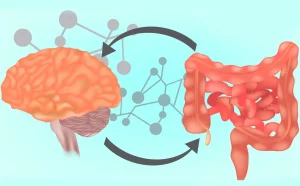Understanding the Impact of Stress on Digestive Health
In the hustle and bustle of modern life, stress has become an all too familiar companion for many. But did you know that stress doesn’t just affect your mental well-being? It can also take a toll on your physical health, particularly your digestive system. This article explores the intricate relationship between stress and digestive health, shedding light on why those persistent tummy aches might be more than just a passing discomfort.
The Gut-Brain Connection
The gut-brain connection is a complex network of communication between the brain and the gastrointestinal system. When you’re under stress, your body releases hormones like cortisol and adrenaline, which can disrupt this delicate balance. This disruption can lead to a variety of gastrointestinal issues, including irritable bowel syndrome (IBS), acid reflux, and indigestion.

The Role of Stress in Digestive Disorders
Stress doesn’t directly cause digestive disorders, but it can exacerbate existing conditions or trigger symptoms in susceptible individuals. For example, if you’re already prone to acid reflux, stress can increase the production of stomach acid, leading to heartburn and discomfort. Similarly, stress can worsen symptoms of IBS, such as abdominal pain, bloating, and irregular bowel movements. Explore more About (Fish And Cancer Risk)
Recognizing the Signs and Symptoms
How do you know if your tummy aches are stress-related? Pay attention to your body’s signals. If you notice that your digestive symptoms coincide with periods of increased stress or anxiety, it’s likely that stress is playing a role. Common signs of stress-related digestive issues include:
- Abdominal pain or cramping
- Bloating or gas
- Diarrhea or constipation
- Nausea or vomiting

Seeking Professional Help: Why It’s Important
Ignoring chronic digestive symptoms can have serious consequences for your overall health and well-being. If you’re experiencing persistent tummy aches or other digestive problems, it’s crucial to seek help from a healthcare professional. A doctor can perform a thorough evaluation, rule out underlying medical conditions, and recommend appropriate treatment options.
Managing Stress for Better Digestive Health
While it may not be possible to eliminate stress entirely from your life, there are steps you can take to manage it more effectively and support your digestive health:
- Practice relaxation techniques: Incorporate stress-reducing activities into your daily routine, such as meditation, deep breathing exercises, or yoga.
- Prioritize self-care: Make time for activities that bring you joy and relaxation, whether it’s reading a book, taking a bath, or spending time outdoors.
- Eat a balanced diet: Focus on eating a variety of nutrient-rich foods, including fruits, vegetables, whole grains, and lean proteins. Avoid trigger foods that can exacerbate digestive symptoms.
- Stay hydrated: Drink plenty of water throughout the day to support healthy digestion and prevent dehydration.
- Get regular exercise: Physical activity can help reduce stress and improve overall well-being. Aim for at least 30 minutes of moderate exercise most days of the week.
| Symptom | Stress-Related Digestive Symptoms | Common Digestive Disorders |
|---|---|---|
| Abdominal Pain or Cramping | Often episodic and related to periods of increased stress or anxiety. | Can be chronic and may worsen after eating or at specific times of the day. |
| Bloating or Gas | Occurs intermittently, often in response to stress triggers. | Can be chronic and may be triggered by certain foods or underlying conditions. |
| Diarrhea or Constipation | May alternate between diarrhea and constipation during periods of stress. | Can be chronic and persistent, with changes in bowel habits lasting for weeks or months. |
| Nausea or Vomiting | Typically transient and may occur in response to acute stressors. | Can be chronic and may be accompanied by other symptoms such as abdominal pain and bloating. |
Conclusion
In conclusion, if stress is giving you tummy aches, it’s time to take action. By understanding the impact of stress on digestive health and adopting healthy coping strategies, you can manage your symptoms and improve your overall quality of life. Remember, seeking help from a healthcare professional is always the first step towards finding relief and getting back on track. Don’t let stress hold you back from living your best life.











